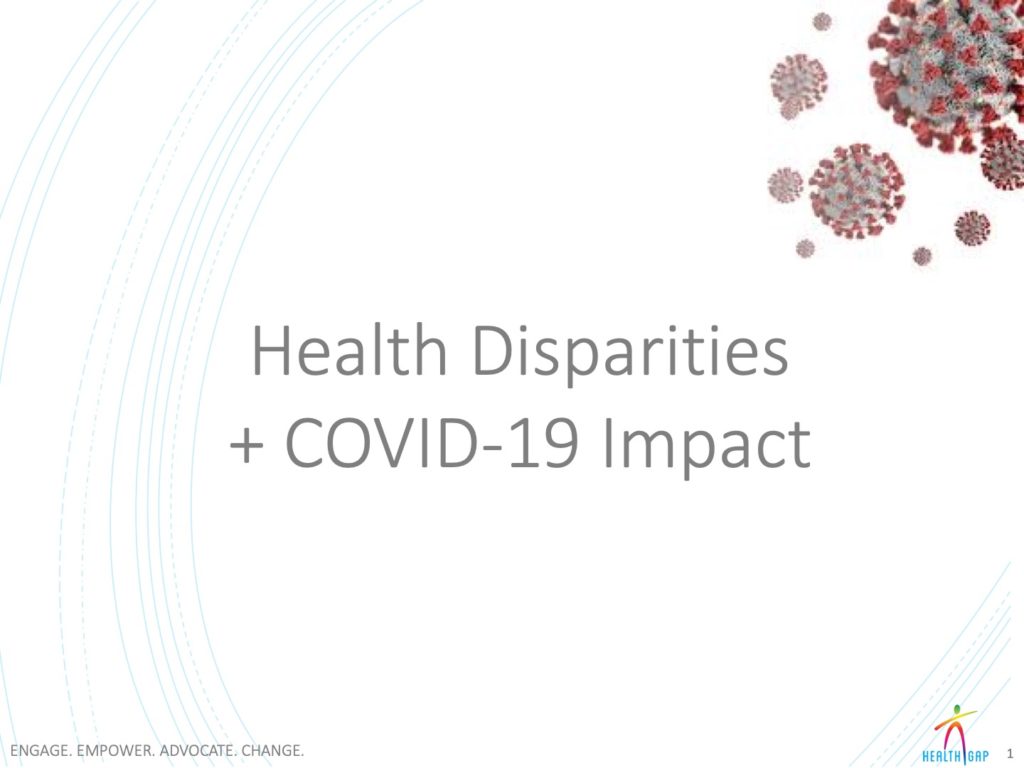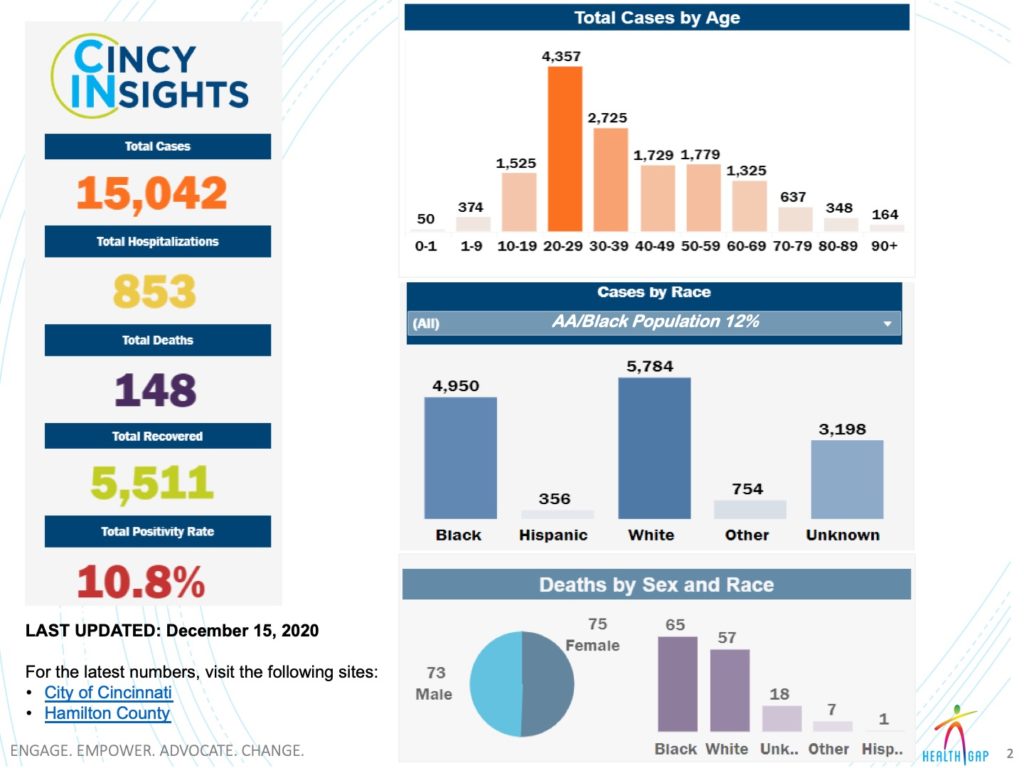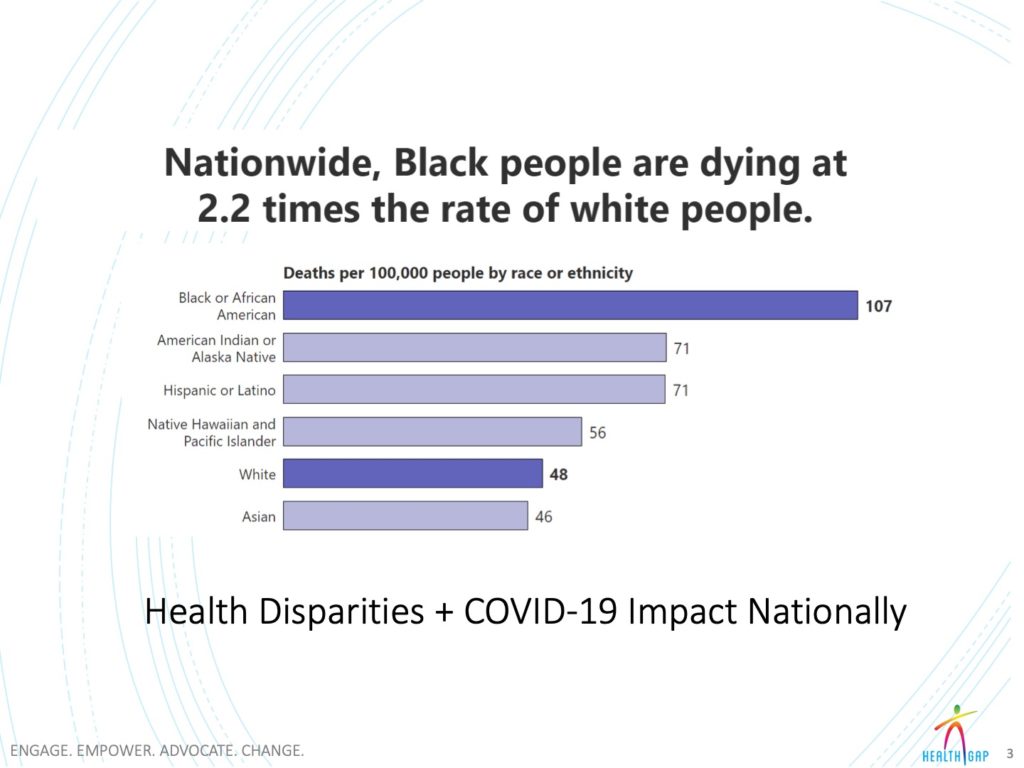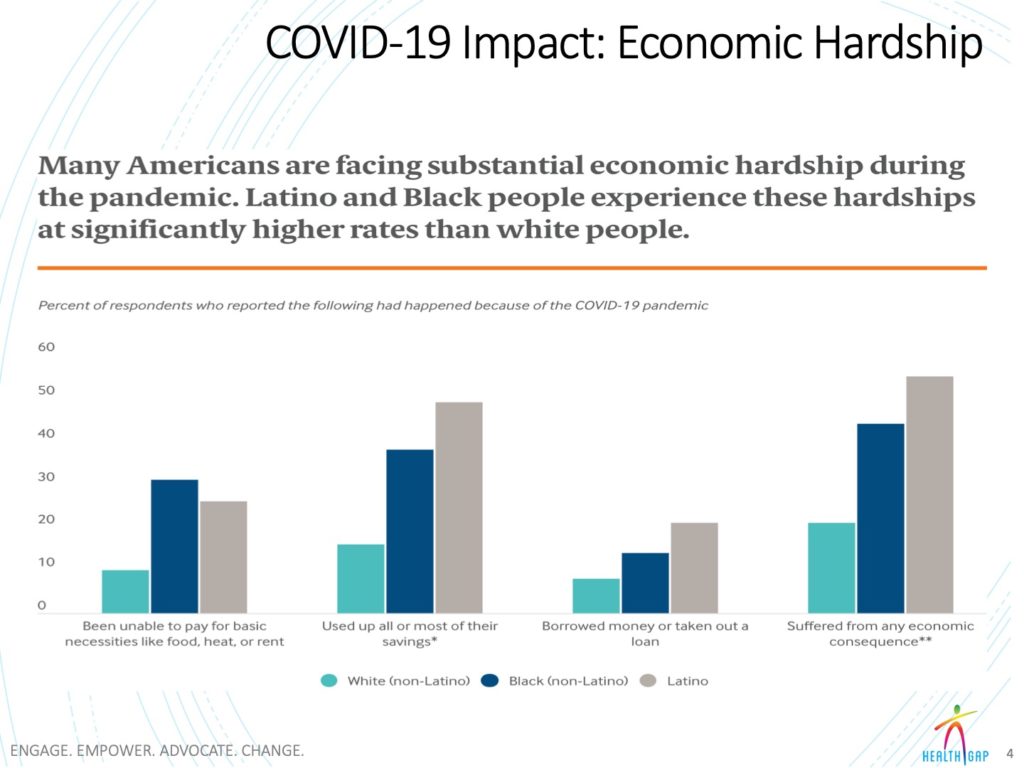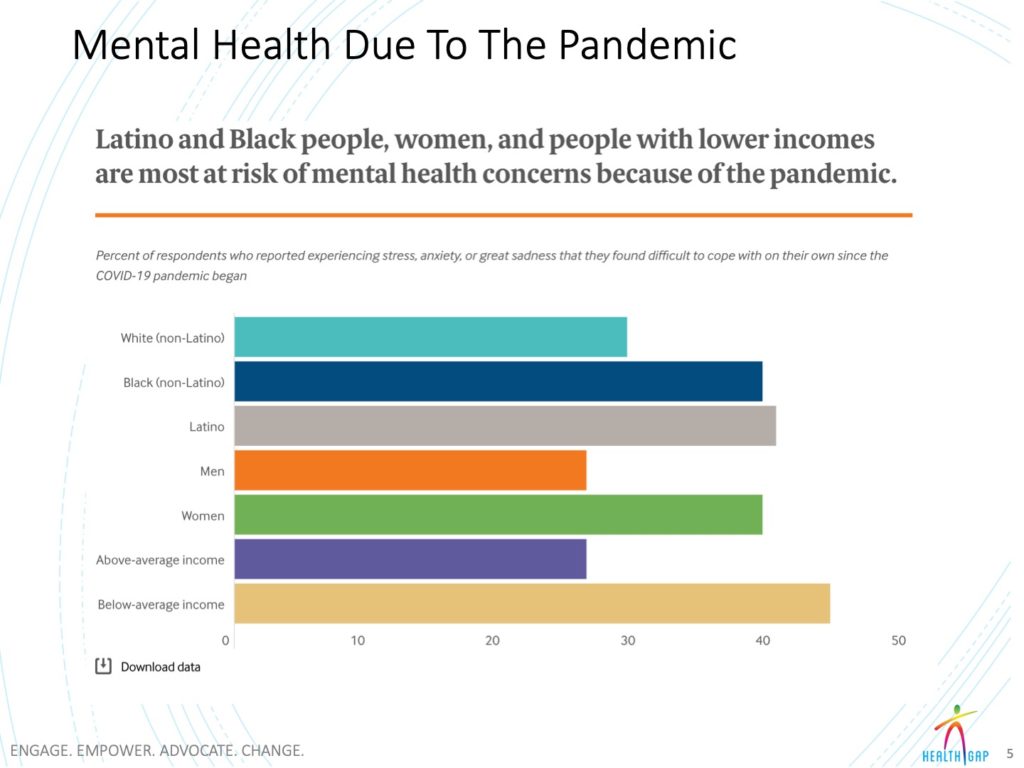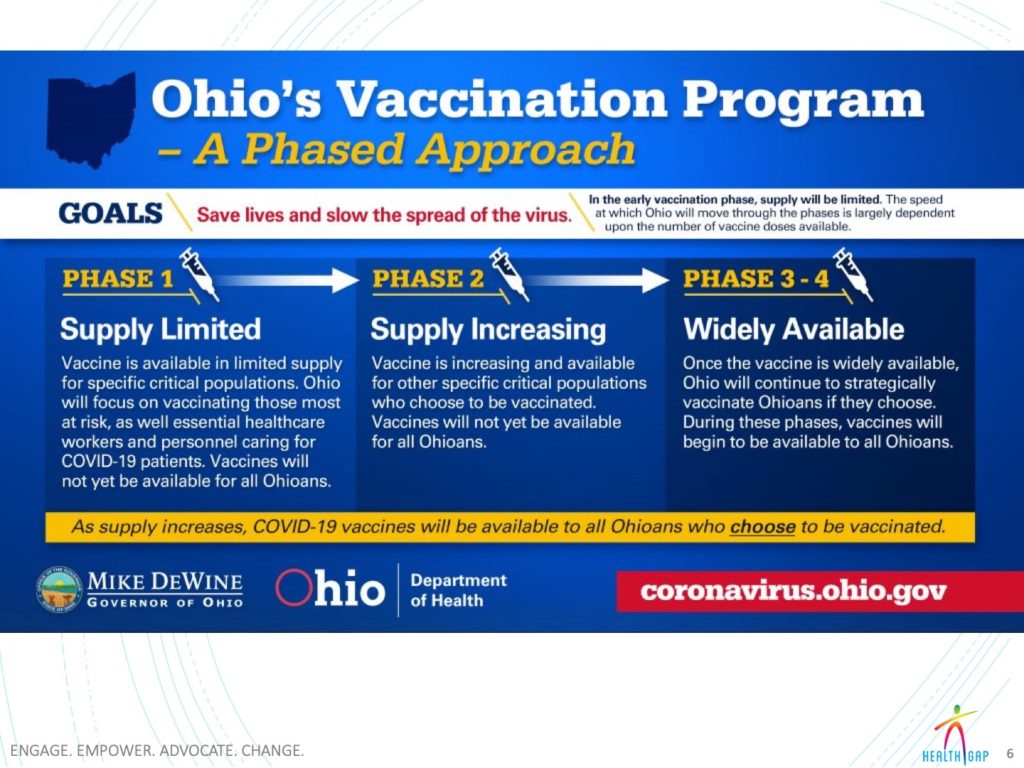(In Review) Black Community Impact
Our COVID-19 Impact Report is complete. Thank you to all who shared their perspectives on COVID-19 and the impact it’s had on your families. Because of you, we gathered important data to inform future community programs and outreach.
The Center for Closing the Health Gap — in partnership with Hamilton County and Xavier University — has completed comprehensive research into the local impact of COVID-19 on Black and Hispanic populations in Hamilton County and Greater Cincinnati. Participants included 3,000 survey responses and qualitative interviews with almost 80 residents.
RESEARCH RESULTS
African Americans have been disproportionately impacted by COVID-19 in every aspect, including higher death and sickness rates, greater losses in income.
The goal of the research is to raise awareness, build knowledge, and expand capacity to mitigate the impact of COVID-19 on Black and Brown communities. Barriers to COVID-19 education and engagement:
- Respondents noted the difference between an anti-vaccine stance versus their COVID-19 vaccine hesitancy. All recognize benefit of various successful vaccines (polio, smallpox, tetanus, mumps).
- Years of racial discrimination, experimentation without consent and ignoring the specific needs of African Americans led to mistrust in healthcare and government systems.
- Respondents cited government-led efforts like the Tuskegee Experiment. The “egregious harm and trauma” caused by them has served as generational warnings.
- Trust has been impossible to build with many being underserved, feeling disconnected, not listened to, or/and dismissed by medical professionals.
- African Americans are twice as concerned about a bad reaction to the vaccine compared to the total sample.
The study also found disparities for Hispanic residents, though not as severe as those for the African American community.
Key findings:
- African Americans and Hispanics are significantly more likely to have known someone who died from COVID-19, and therefore believe it is a serious threat to their health.
- The majority of respondents understand how the virus is spread, its risks, and its prevention basics. Both African Americans and Hispanics perceive their risk to be lower due to precautions taken.
- More than half of total survey respondents are extremely likely to get the vaccine when it becomes available, but African American respondents are less likely to get the vaccine when available.
- There are concerns regarding the COVID-19 vaccine safety. The speed at which it was approved incites hesitation and concerns about the efficacy, side effects, negative reactions, and long-term consequences. Many respondents are waiting to observe others’ reactions to the vaccine.
- Hispanics are concerned about the accessibility of the vaccine, and the challenge of reaching undocumented residents — and the cost.
- The Cincinnati Health Department garners the most trust to deliver COVID-19 vaccine information.
- Even with a survey sample of higher-educated people with higher incomes compared to Hamilton County’s medians, respondents of color experienced a greater loss in income during the pandemic.
- Trust of the medical field and vaccine developers is not a factor for Hispanic and Asian populations. Adversely, it is a significant barrier for African Americans.
In response to the research analysis, we have proposed the following recommendations to improve outcomes:
- Create full transparency communication materials that detail the vaccine’s development, side effects, risks, and unknowns, including Spanish translated information and visuals.
- Enroll Health Departments, doctor/organizations and faith leaders who support the vaccine and why, and share those endorsements with community residents.
- Continue to quantitatively track perceptions and attitudes to determine if/how messaging is resonating and effective.
- Periodically conduct qualitative interviews/focus groups to provide context for quantitative data.
- Continue Community Support Groups to help residents manage increased stress and anxiety due to the pandemic, coping with loss of family/loved ones, caregiver fatigue, the racially tenuous environment of the country and managing chronic diseases.
- Many respondents think African American doctors should help deliver creditable information to address concerns. People want someone local they trust to lead them through the pandemic.
The study has confirmed many historical realities related to ethnic health disparities and shined a light on new insights and paths to improve the lives of marginalized people right here in Cincinnati. It’s time for our leaders to come together to make systemic changes and improvements so that access to information and care is more equitable.
Our Campaign
Research
Health Disparities + COVID-19 Impact Report
Click the button to download the PDF or view the report contents below.

